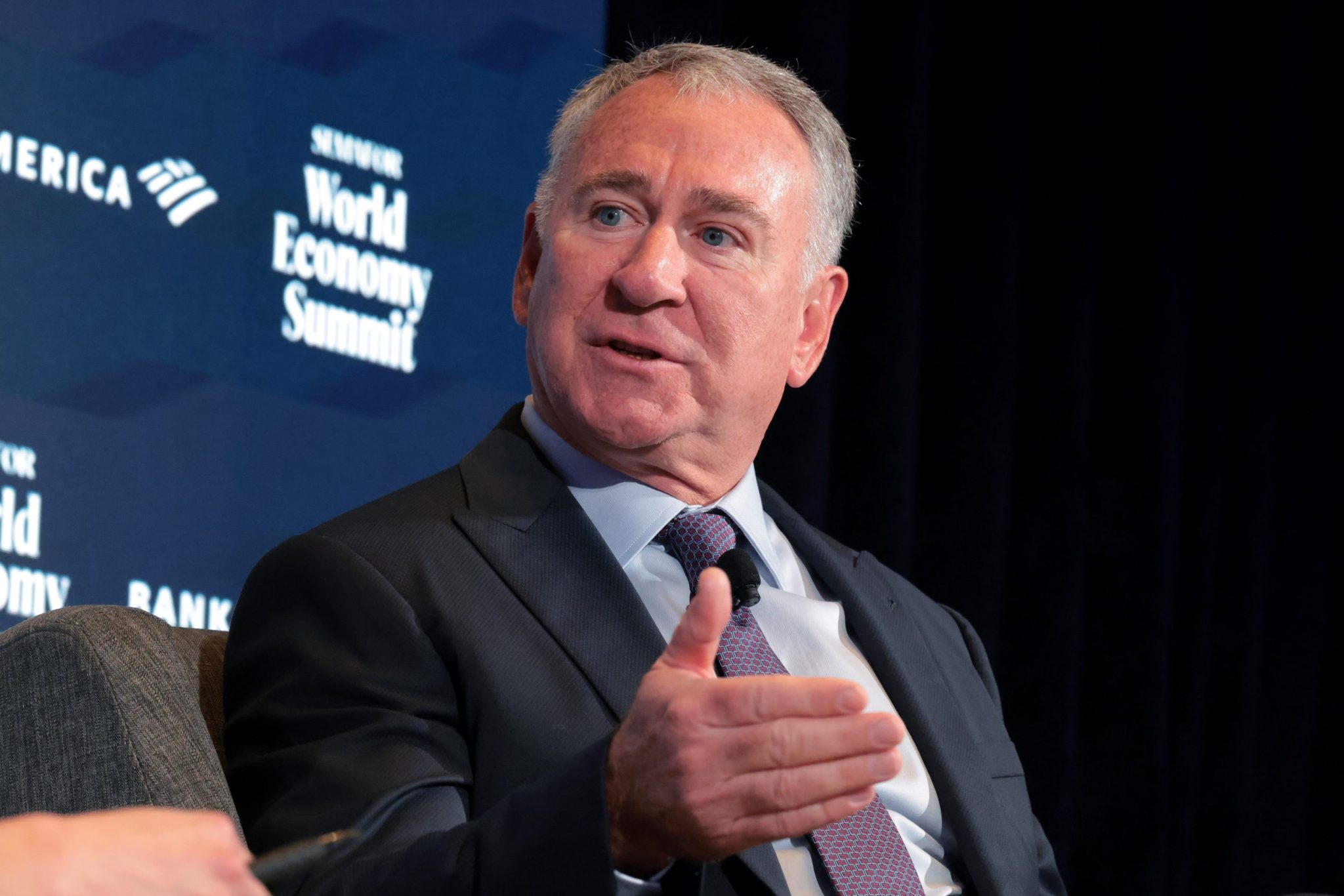
While you’d be hard-pressed to find a financial expert who believes the Fed is perfect, you’d have to search even longer for an economist who believes political meddling in the central bank is a good idea.
Many on Wall Street are nervously eyeing just how far the White House is going to press into the Jerome Powell-led institution. The battle has been over the lowering of the base rate, as President Trump wants, and shaping the members of the Federal Open Market Committee more closely to the direction the Oval Office wants to take the economy.
Ken Griffin, like many others, is nervous about the precedent this sets. After all, the U.S. Federal Reserve (like the autonomous central banks of many other developed nations) is a key draw for investors across the planet on account of the fact it is mandated to secure the long-term health of the economy, instead of capitulating to pressure from politicians.
In an opinion piece published in The Wall Street Journal last night, Griffin warned that if investors lose faith in the notion that the Fed is working for the long-term benefit of the economy and consumers then this will ultimately lead to higher rates on long-term debt.
The Citadel CEO highlighted that long-term debt covers a range of borrowing which is not limited to individuals: It includes governments financing their deficits, families trying to afford homes and companies investing.
The Citadel CEO—alongside Anil K. Kashyap of the Chicago Booth Business School—wrote that while the Trump administration has been right to focus on lowering costs for consumers and businesses, his methods are damaging future prospects: “The president’s strategy of publicly criticizing the Fed, suggesting the dismissal of governors, and pressuring the central bank to adopt a more permissive stance toward inflation carries steep costs. These actions raise inflation expectations, increase market risk premiums, and weaken investor confidence in U.S. institutions.”
Griffin pointed to the fact that the president firing the Bureau of Labor Statistics chief, Erika McEntarfer, had damaged the credibility of data produced by major American institutions.
“Together, these developments highlight risks that recall experiences in emerging markets where political influence eroded institutional credibility,” Griffin wrote. “While the U.S. benefits from a large stock of credibility accumulated over decades, it isn’t limitless. If eroded, markets will demand far higher interest rates for longer-term debt.”
This higher interest rate environment, of course, would be passed back to the Treasury itself.
The interest on U.S. debt is already eye-watering. On America’s $37 trillion debt pile, the accrued interest expense on Treasury notes in July alone was $38.1 billion. Add to that $13.9 billion in interest on Treasury bonds, $2.85 billion on Treasury floating rate notes (FRN), and a total of $6.1 billion across Treasury inflation-protected securities (TIPS) assets. The total comes to $60.95 billion for the month.
If interest on that debt were to go up—and even with the tariff regime bringing in some $30 billion a month—it could cripple the economy.
Like many economists, Griffin drew cautionary tales from both America’s own history (think President Nixon and Arthur Burns as the Fed chairman through the 1970s) and more recently, Liz Truss’s disastrous government in the U.K.
Griffin noted: “Political leaders criticized the Bank of England and the Office of National Statistics, questioning their decisions and the accuracy of economic data. Amid elevated inflation and fragile finances, this sparked a crisis of confidence that forced the Bank of England into an emergency intervention to stabilize markets.
“The consequences remain: The loss of credibility has left the U.K. facing higher borrowing costs, forcing painful fiscal choices involving spending cuts and tax increases.” (Those concerned about national debt will be familiar with the move to cut spending and increase taxes, as it reduces government overheads while generating more revenue and brings deficits down as such.)
Institutions need accountability
Despite his defence of the central bank’s autonomy, Griffin added this doesn’t mean the Fed should be untouchable: “None of this is to suggest that the Federal Reserve should be insulated from criticism. In recent years, critics and supporters have vigorously debated its response to post-pandemic inflation … Independence isn’t a permanent entitlement; it must be earned and maintained through transparency, accountability and performance.
“But there is a clear process for accountability. Congress has a duty to oversee the Fed, and this oversight must be free of undue interference from the executive branch.”
Chicago Fed president Austan Goolsbee made a similar point in an exclusive interview with Fortune, saying: “Central banks should be held accountable for their actions. And they are. The evidence of what happened during the COVID times, in my view, [is that] there’s a lot of public accountability on the central banks—not just in the United States but everywhere—and that’s totally fine. That’s a completely different issue than: ‘Do elections drive monetary policy decisions?’”
Indeed, many economists disagree with the very foundation upon which McEntarfer was dismissed from the BLS. The institution didn’t get its reporting wrong as critics argued, Oxford Economics’ Nancy Vanden Houten told Fortune last week, rather revisions are a natural outcome of new data: “The BLS didn’t get it wrong. Businesses have three months to respond to the BLS survey; as the BLS gets more information they update their estimates.”
The cost of pushing too far, Griffin warned, will damage prospects for all Americans: “Credibility in economic policymaking is built slowly … and can be lost quickly if those processes are disregarded. Preserving credibility is essential because it benefits all Americans by keeping the costs of borrowing money lower, supporting sustainable growth, and maintaining global confidence in U.S. institutions.
“Once lost, it is costly and time-consuming to rebuild. Protecting it must remain the central priority of U.S. economic policy.”















